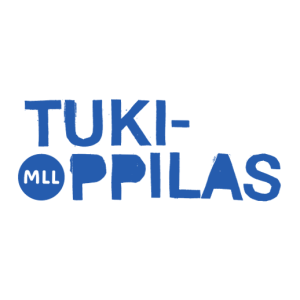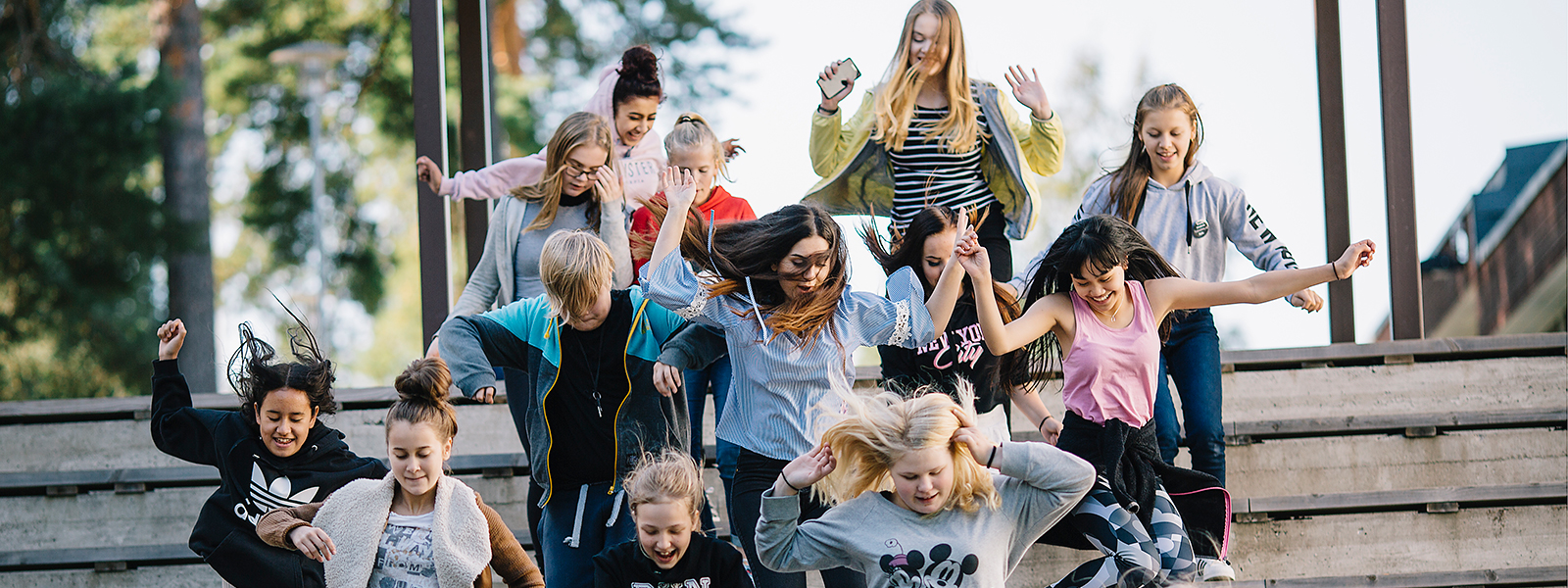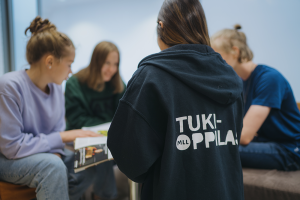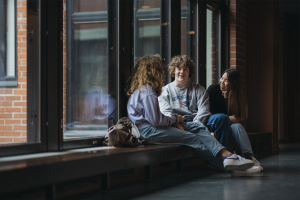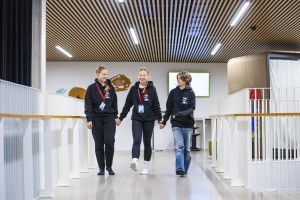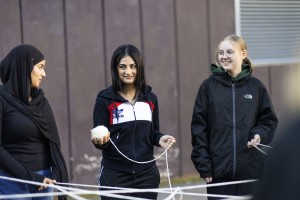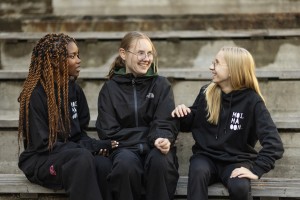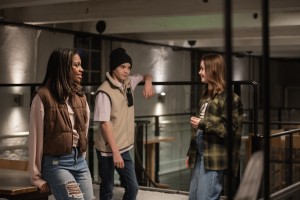MLL Peer Support program
The peer support program operates in secondary schools and is based on the idea of peer support. A peer supporter is an ordinary student that works voluntarily in order to strengthen the school community and to help other students. Peer supporters are given a training course. The activities are supervised by an adult instructor that works in the school, often as a teacher.
The Mannerheim League for Child Welfare (MLL) started peer support activities in Finland in 1972. Since then the peer support programme has developed over the past fifty years or so into a broad national multi-layered network encompassing over 11 000 peer students, 1000 instructors and 40 trainers.
In the peer support program students give support to each other by discussing and organising common events. The activities increase the students’ shared sense of responsibility and enhance the overall cooperation at school. The aim is to promote a feeling of companionship among the students, make schooling more enjoyable, increase social responsibility and secure a safe, enjoyable and supportive school year for all.
The peer support program benefits the whole school community. As students of the school, peer supporters know what is going on in the world of the young. Peer support activities address common concerns and the voice of the young is heard and acted upon. The programme is a dialogue between the young and adults, enabling the students themselves to be active participants in the decision-making processes.
The activities are coordinated by the MLL’s main office and regional branches. At the moment there are peer support activities in some 93% of the secondary schools in Finland. There are also mentoring activities in grades 1 to 6 of primary schools and peer tutoring in senior secondary schools.
Every school has its own culture, and ways of doing things vary from school to school. This is the case also in the case of peer support activities.
The main peer support activities are the mentoring of newcomers and the support for the grouping process. This is done by providing information about school services and activities, organising games and experiential learning opportunities for the students, and acting as trustworthy partners with whom to talk with about difficult personal issues.
- In serious cases, such as of school bullying, the peer supporter can inform the school staff and student welfare officers about the situation.
- Peer supporters also arrange various theme days, events and campaigns.
- At the beginning of the school year peer supporters organize a kick off in their own school for the School Peace programme for the whole school year.
Peer supporter activities offer opportunities for non-formal learning and activities within the framework of formal schoolwork. At best they offer a learning environment in which groupwork and cooperative skills are learned, other students are helped, and a pleasant supportive school community spirit is created. Doing things together is also a lot of fun and improves motivation for schoolwork.
For the individual peer supporter the system gives tools for life and the certificate of being trained and working for other students may help in getting a job or in applying to a higher educational institution.
The staff at the MLL’s regional branches gives support to schools’ peer support activities in all situations. They give advice and information to the leaders regarding the training of peer supporters and provide a network of trainers that the schools can use. The system provides beginners and advanced training courses for both peer support instructors and peer supporters.
The MLL’s local association is an important partner to a school’s peer support activities. Many associations have appointed a volunteer responsible for peer support activities and youth work. The local association can take part in training peer supporters, assist financially or help in arranging events. The cooperation can start by, for instance, inviting the local volunteer responsible for peer student activities and youthwork to common meetings, which can address what support the school needs, what the association has to offer, what resources already exist and what kind of resources are needed. Working together is often more fruitful and can identify better ways of working. Addresses of local associations are available from MLL’s local regional branches.
Material about the peer support programme can be of great assistance in planning and organising events and campaigns. The training manual on peer support is a useful guide containing, for instance, the script of basic training for peer supporter. It is also worth reading the MLL’s range of other publications about peer support activities. Materials are at the moment provided in Finnish and to some extent in English.
The Mannerheim League for Child Welfare is an expanding and active Finnish non-governmental organisation working for the benefit of children, young people and their families. It encompasses more than 96 000 individual members, more than 566 local associations and 10 local regional branches.
Please contact us if you want to know more about peer support program and materials.
The Mannerheim League for Child Welfare
PB 141
FI-00531 Helsinki, Finland
Paula Aalto
Program Manager
+358 503096229
paula.aalto@mll.fi
Anna-Kaisa Hiedanniemi
Lead Specialist
+358 505176377
anna-kaisa.hiedanniemi@mll.fi
Satu Suomalainen
Specialist
+358 50 4678 670
satu.suomalainen@mll.fi
